
BRI Concerns Escalate: Pokhara Residents Say ‘No’ to Chinese Influence
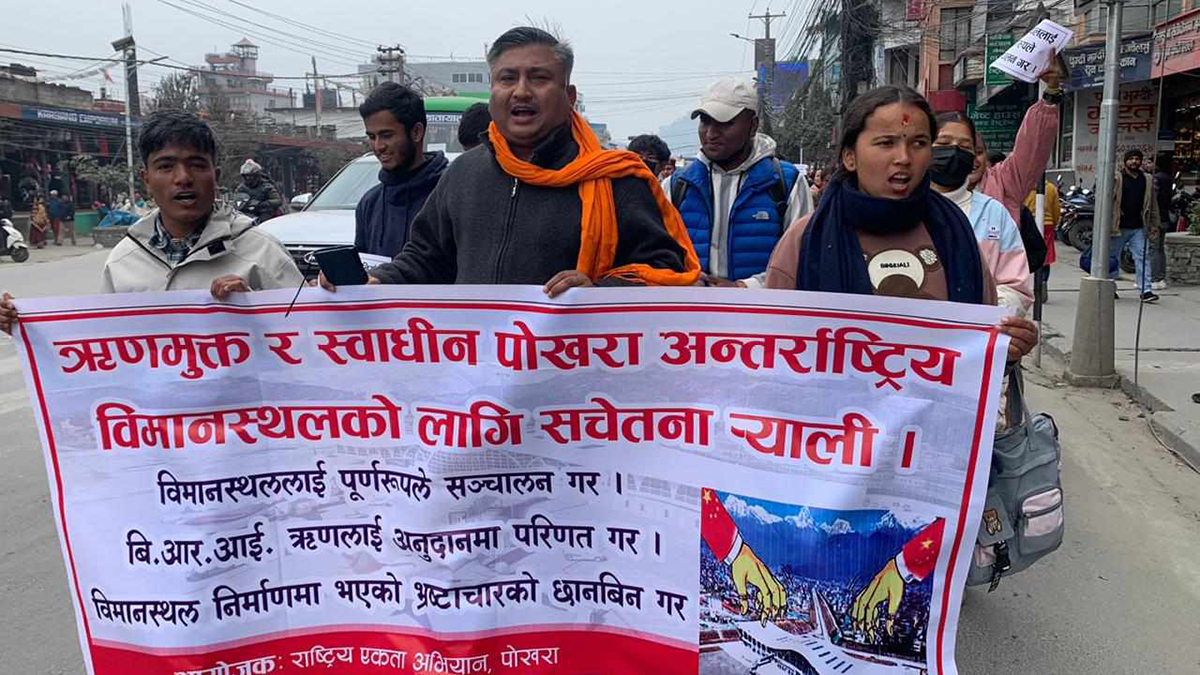
Rastriya Ekta Abhiyan Pokhara organized an awareness rally in Pokhara, highlighting apprehensions about the Belt and Road Initiative (BRI) and its potential consequences for Nepal. The focal point of the protest was the Pokhara International Airport, where participants advocated for a debt-free and independent future.
Led by central member Ishwar Lama, the protest saw a gathering of locals raising slogans such as ‘free the Pokhara airport from the debt trap,’ ‘operate the airport fully,’ ‘protect national independence,’ and ‘convert the BRI loan into a grant.’ The demonstrators expressed fears that the BRI project, which is often seen as a symbol of Chinese financial aid, might turn into a debt burden for the country.
Binay Yadav, the central coordinator of Rastriya Ekta Abhiyan Pokhara, addressed the gathering, emphasizing the perceived risk to national independence due to the increasing influence of China. Coordinator Yadav argued that what is presented as assistance could, in reality, pose a significant threat to the future of Nepal and its people.
Yadav went on to express concerns about the financial implications of China’s involvement in the development of Pokhara International Airport, suggesting that the seemingly benevolent assistance could transform into a debt trap for the country in the long run.
Highlighting a broader strategic concern, Coordinator Yadav alleged that there might be ulterior motives, including the potential deployment of the Chinese army in Pokhara, using economic losses at the airport as a pretext. This claim added a new dimension to the ongoing debate surrounding the BRI project in Nepal.
Several other speakers in the program echoed the sentiments of the organizers, emphasizing the importance of national independence and economic stability. The overarching argument was that the BRI, instead of being a source of financial assistance, could, in fact, burden Nepal with a substantial debt, potentially compromising its sovereignty.
The rally served as a platform for the community to voice their concerns and demand transparency in dealings with foreign entities. The call to convert the BRI loan into a grant resonated strongly among the protesters, reflecting a desire for a more sustainable and mutually beneficial relationship with China.
- Nepal Caught in China’s BRI Crossfire: Diplomatic Push Sparks Concerns Over Sovereignty and Debt
- China Encourages College Graduates to Join Housekeeping Industry Amid Youth Unemployment Woes
- Defense Leaders Convene in Laos to Address Asia’s Security Challenges
- CPN (UML) Hosts Massive Awareness Assembly in Kathmandu

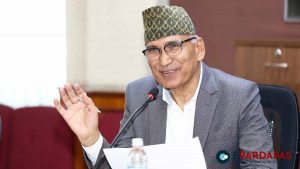
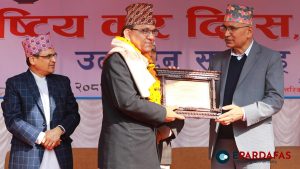
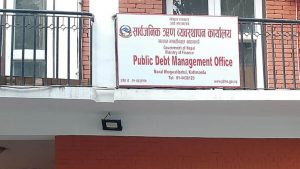
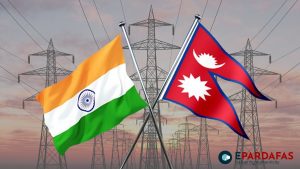



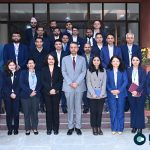
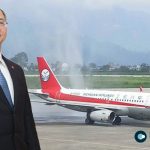

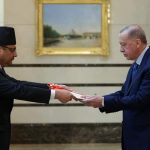
Comments